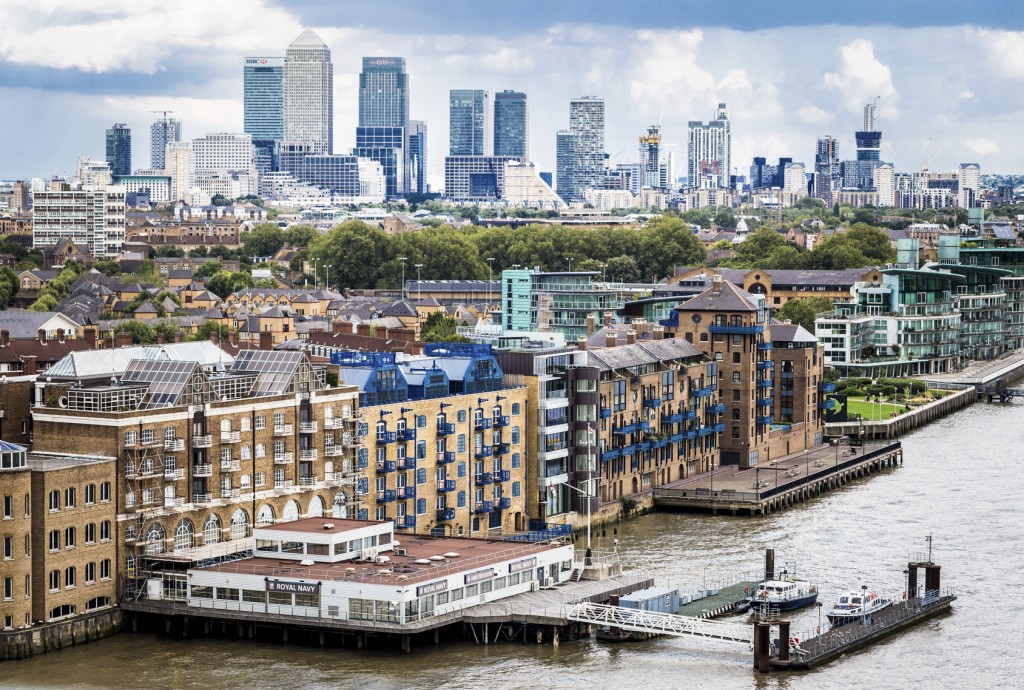
City of London panoramic view featuring skyscrapers of the Isle of Dogs with Canary Wharf in the distance.
Are you considering becoming a landlord? If so, you may be able to claim for expenses even before you have started to receive rental income.
Profits from UK land or property are treated, for tax purposes, as arising from a business. The broad scheme is that rental business profits are computed using the same principles as for trades. Expenses are allowable if they are incurred wholly and exclusively for the rental business.
If a property is let at less than the full commercial rent, any expenditure relating to that property will normally fail the wholly and exclusively test. Although, strictly, no expenditure on such properties is admissible as an expense of the rental business, expenses can be deducted up to the amount of rent derived from that property.
Pre-letting expenses
Usually a rental business begins when letting first commences.
Allowable revenue expenditure incurred before the rental business begins can be relieved under provisions for pre-trading expenditure. Relief is only due if the expenditure:
- is incurred wholly and exclusively for the purposes of the rental business
- is not capital expenditure
- is incurred within a period of seven years before the date the rental business is started, and
- is not otherwise allowable as a deduction for tax purposes, and
- would have been allowed as a deduction if it had been incurred after the rental business started.
Thus, for example, council tax on a property could be allowable under the above rules if it is due before the property is first let, provided the property was acquired solely for the purposes of the rental business. However, the relief is not allowable if the council tax was paid on the taxpayers own private residence before the property was let (as it would be the taxpayers own expense).
Qualifying pre-letting expenditure is treated as incurred on the day on which the taxpayer first carries on their rental business. So, any repairs carried out before the letting starts can still be deducted from the first years gross rents.
Capital or revenue – two contrasting court cases
Pre-letting expenses have been challenged successfully by HMRC in Law Shipping Co Ltd v CIR 12 TC 62. Pre-letting expenses were disallowed on the key point that a ship was bought in a defective state and could not be used until the repairs had been undertaken.
This can be contrasted with the expenditure in Odeon Associated Theatres Ltd v Jones 48 TC 257, where the dilapidated state of cinemas was due to the accumulation of repairs in wartime (and just after) when building work was not permitted to be carried out. The courts allowed the deduction.
Although both companies purchased assets in poor condition, there were key differences between the two cases:
In Law Shipping, the company acquired a ship in poor condition that had to be repaired before they could use it. This was capital expenditure on acquiring a working asset.
In Odeon, the company was able to operate the cinemas for a number of years before they carried out the repairs. Furthermore, the price paid was not reduced to reflect the state of repair. The expenditure was found to be on repairs and, therefore, allowable.
The following factors should be considered:
- Whether the purchase price is substantially lower in order to reflect the poor state of the asset. Is there any evidence in, for example, the contract for the sale of the asset or in negotiations leading up to the contract that the purchase price was substantially less because of the dilapidated state of the asset?
2. Whether the expenditure merely reflects the reduced value of an asset due to normal wear and tear (for example, between normal maintenance cycles).
3. Whether the asset could be used shortly after acquisition without being repaired.
4. Whether there is a sound commercial accountancy principle for the expenditure to be charged as revenue or capital. For example, has the asset been improved or just restored to its original state? HMRC does accept that the use of more modern materials or better technology does not by itself constitute capital expenditure.
5. Whether abnormally heavy repairs expenditure is incurred on an asset shortly after the change of ownership.
Structuring your buy-to-let portfolio in the correct way, and then preparing accurate and efficient accounts and tax computations will ensure you are not paying more tax than you need to.
It’s easy to be penny wise and pound foolish in this area, for the cost of engaging an accountant, you may well save thousands in tax liabilities.
Contact us today, we have Chartered Accountants in Canary Wharf and Essex waiting to hear from you.

















